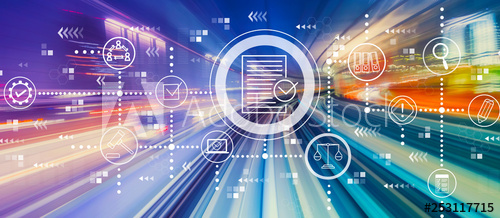It’s no secret that technology is becoming an increasingly integral part of not only the travel industry, but humanity itself.
Add to that the rapidly evolving expectations of customers – immediacy, accuracy and personalisation are key to winning them over these days – and travel professionals well and truly have their hands full.
Identifying trends is key to staying ahead of the pack when it comes to the use of technology in travel. Here are five big ones you should be taking note of in 2020:
Biometrics
As government authorities and travel companies look for faster, more efficient and seamless ways of identifying and authenticating visitors, passengers and guests, expect to see biometrics to become a more commonly adopted approach.
While fingerprints and facial recognition are already widely used at airports across the world, airlines and hotels are also starting to implement these types of biometric technology to help speed up the check-in and check-out process, improve security and even authorise payments.
It must be noted, however, that the gathering of customer data through biometrics brings with it privacy concerns around how the data is used and who can access it.
Smart rooms
An increasing number of hotels are cottoning on to the Internet of Things, and for good reason.
From enhancing the customer experience through greater personalisation and the ability to control rooms remotely, to improving sustainability and quickly identifying and responding to maintenance issues, the IoT is evolving hotels to better serve the needs and wants of tomorrow’s guests.
AI and VR
Artificial intelligence (AI) and virtual reality (VR) are already playing respective roles in the travel industry, but it’s the extent of their roles that will be interesting to watch.
Right now, travel companies are mostly using AI to sort through customer data to analyse business performance and manage their inventory, and to respond to customers faster with the creation of chatbots.
More and more hotels are utilising VR to showcase their offering online and increase bookings with things such as simulated hotel tours and interactive maps. VR is also set to be used for a customer’s entire travel search and booking experience, and with sustainability a major focus for all travel organisations, we could soon see the rise of virtual vacations.
Blockchain
Blockchain’s potential has been talked about for some time, but the power of this technology is finally starting to be realised within the travel industry.
Essentially, blockchain is a public ledger that allows information on transactions between parties to be stored and distributed across a decentralised, peer-to-peer network. Check out the below video for a more detailed explainer:
The most obvious and important benefit of blockchain for the travel industry is its ability to facilitate secure, traceable payments. However, this technology also has the ability to simplify customer loyalty schemes, track luggage movements and improve ID authentication methods.
Big data
If understanding and utilising big data is not already a priority for travel businesses, they may as well start digging their own grave.
Big data is simply a term used to describe huge sets of data that can’t be processed using traditional methods.
For those in the travel industry who make the most of big data, the rewards are game-changing. They can better understand their customers and target them more effectively, accurately predict future demand, enhance product pricing, and manage their reputation a lot more easily.
Source: https://www.travelweekly.com.au/article/5-tech-trends-keep-eye-2020/




